Based Diet

How can I incorporate more plant-based meals into my family's diet ?
Incorporating more plant-based meals into your family's diet can lead to improved health, weight management, and a reduced environmental impact. Here's how to do it: 1. **Understand the Benefits**: Improved health, weight management, and environmental sustainability are key advantages of a plant-based diet. 2. **Gradual Transition**: Start by replacing one or two meals per week with plant-based options to ease your family into the change. 3. **Meal Ideas**: Try Meatless Mondays, vegetable-centric dinners, and incorporating plant-based proteins like tofu and beans. 4. **Involve Your Family**: Get your family excited about the change by letting them choose recipes and shop for ingredients. 5. **Shopping Tips**: Buy fresh produce, stock up on staples like grains and legumes, and experiment with new foods. 6. **Education and Resources**: Use online resources like websites, YouTube channels, and cookbooks to learn about plant-based eating. 7. **Meal Planning and Preparation**: Plan weekly meals, consider batch cooking, and get creative with leftovers. 8. **Emphasize Flavor and Creativity**: Use herbs, spices, marinades, and sauces to add flavor, and don't be afraid to experiment with different cooking techniques.

Can following a vegetarian or vegan diet be considered healthy ?
A vegetarian or vegan diet can indeed be considered healthy, but it depends on how well-planned and balanced the diet is. Here's a detailed analysis: ## **Nutritional Requirements** ### *Protein* Vegetarians can get protein from sources like beans, lentils, tofu, tempeh, and dairy products. Vegans need to rely on plant-based proteins such as legumes, grains, nuts, and seeds. ### *Iron* Plant-based sources of iron include leafy greens, beans, and fortified cereals. However, the absorption rate of non-heme iron (from plants) is lower than heme iron (from animals). Consuming vitamin C-rich foods can enhance iron absorption. ### *Calcium* Vegetarians can get calcium from dairy products. Vegans need to find sources like fortified plant milks, tofu, and certain greens. ### *Vitamin B12* This nutrient is only found naturally in animal products. Vegetarians who consume dairy or eggs don't usually have a deficiency, but vegans must rely on fortified foods or supplements. ### *Omega-3 Fatty Acids* Flaxseeds, chia seeds, hemp seeds, and algae-based supplements are good sources for vegans. Vegetarians can also get it from fish. ## **Potential Health Benefits** - **Lower Risk of Chronic Diseases**: Studies show that vegetarian and vegan diets can reduce the risk of heart disease, high blood pressure, type 2 diabetes, and obesity. - **Healthier Weight**: Plant-based diets tend to be lower in calories and higher in fiber, leading to better weight management. - **Rich in Antioxidants**: Fruits, vegetables, whole grains, and legumes are rich in antioxidants, which help fight inflammation and cellular damage. ## **Challenges and Considerations** - **Nutrient Deficiencies**: Without proper planning, vegetarians and especially vegans may face deficiencies in certain nutrients like vitamin B12, iron, calcium, and omega-3 fatty acids. - **Limited Food Choices**: Avoiding entire food groups can make meal planning more challenging and limit variety. - **Social and Cultural Factors**: Eating out or attending social events where vegetarian or vegan options are not readily available can be difficult. ## **Conclusion** Adopting a vegetarian or vegan diet can be very healthy if it is well-planned and balanced to meet all nutritional needs. It's essential to ensure adequate intake of key nutrients that might be lacking in plant-based diets. Consulting with a registered dietitian can help individuals navigate these challenges and create a sustainable, healthy eating plan.

What are the benefits of a plant-based diet for women ?
A plant-based diet offers numerous health benefits for women, including improved cardiovascular health, weight management, cancer prevention, bone health, reproductive health, digestive health, skin health, and mental wellbeing. It is important to consult with a healthcare professional or registered dietitian when making significant dietary changes.

What is a good marathon diet plan ?
A good marathon diet plan should provide the necessary nutrients and energy to support an athlete's training and performance during a marathon. It should include a high-carbohydrate diet, protein needs, and healthy fats. A high-carbohydrate diet should provide around 60-70% of total daily calories from carbohydrates, while protein needs should provide around 10-20% of total daily calories. Healthy fats should make up around 20-35% of total daily calories. Good sources of carbohydrates include whole grains, fruits, vegetables, legumes, and low-fat dairy products. Good sources of protein include lean meats, poultry, fish, eggs, nuts, seeds, and plant-based proteins like tofu and tempeh. Good sources of healthy fats include olive oil, avocados, nuts, seeds, fatty fish (such as salmon), and dark chocolate.
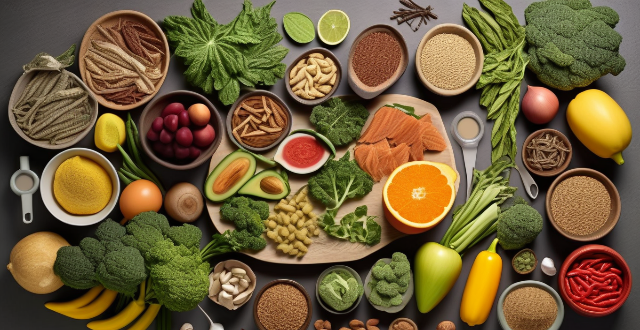
What are some strategies for eating a more plant-based diet ?
Strategies for eating a more plant-based diet include embracing whole foods, experimenting with alternative proteins, getting creative with meal planning, learning about nutritional balance, educating yourself, supporting sustainable practices, and connecting with others. These steps can help you transition to a healthier and environmentally friendly way of eating while ensuring you receive all the necessary nutrients.

Can sports supplements replace a healthy diet ?
Sports supplements can enhance performance and provide targeted nutrients, but cannot replace a healthy diet. Whole foods offer complete nutrition necessary for overall health. Supplements may cause side effects and are expensive. Prioritize a well-balanced diet and use supplements judiciously to support specific goals.
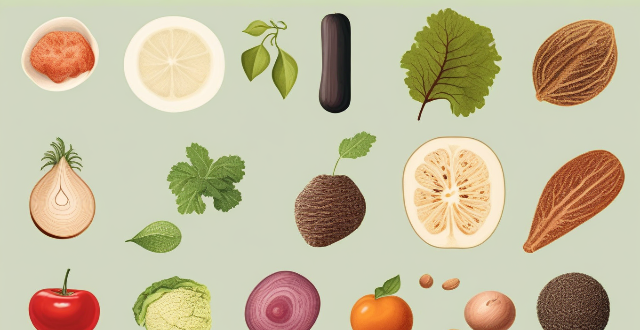
What kind of diet do celebrities follow ?
Celebrities maintain their physique and appearance through various diets, each with its benefits. Clean eating focuses on whole foods, boosting energy and digestion while aiding weight loss. The vegan diet eliminates animal products, reducing the risk of chronic diseases and improving skin health. The keto diet promotes rapid weight loss, increased energy levels, and reduced inflammation. While these diets work for some celebrities, individual needs vary, and it's essential to consult a healthcare professional before making significant changes to one's diet or lifestyle.

How do I ensure I'm getting enough nutrients on a vegetarian diet ?
This topic discusses the essential nutrients to watch on a vegetarian diet and provides tips for meal planning. It highlights key nutrients such as protein, iron, vitamin B12, calcium, vitamin D, and omega-3 fatty acids and suggests food sources for each. The text also emphasizes the importance of diversifying intake, considering supplementation, having regular check-ups, and working with a professional to create a balanced meal plan. Overall, it offers guidance on ensuring adequate nutrient intake while following a vegetarian diet.

What kind of diet do celebrities follow for a healthy lifestyle ?
Celebrities often follow specific diets to maintain their health and appearance, including the Mediterranean, Vegan, Paleo, Keto, Intermittent Fasting, Juicing, Plant-Based, Clean Eating, DASH, and Mindful Eating diets. These diets offer various benefits such as weight loss, improved heart health, better digestion, and enhanced mental clarity. Celebrities like Jennifer Aniston, Beyoncé, Matthew McConaughey, Halle Berry, Hugh Jackman, Salma Hayek, Ellie Goulding, Gwyneth Paltrow, Queen Latifah, Adele, and Jennifer Lawrence have incorporated these diets into their lifestyles.

Which diet plans do celebrities follow to keep themselves fit and healthy ?
Celebrities are often seen as epitomes of fitness and health, inspiring millions to follow their lifestyle choices. One of the most significant aspects of their routine is their diet plan. Let's take a closer look at some popular diet plans followed by celebrities to maintain their physique and overall well-being: 1. Intermittent Fasting 2. Plant-Based Diet 3. Ketogenic Diet 4. Mediterranean Diet 5. Juicing Diet

Is it necessary to follow a high-protein diet for strength training
A high-protein diet can be beneficial for strength training, but it is not absolutely necessary as long as enough protein is consumed to support muscle growth and repair. Reasons for a high-protein diet include muscle repair and growth, increased metabolism, satiety, and improved recovery. However, the amount of protein needed varies based on individual factors, and general guidelines for intake during strength training are 0.8-1.2 grams per kilogram of body weight, with a source of protein consumed within 30-60 minutes after a workout. High-quality sources of protein should also be chosen.
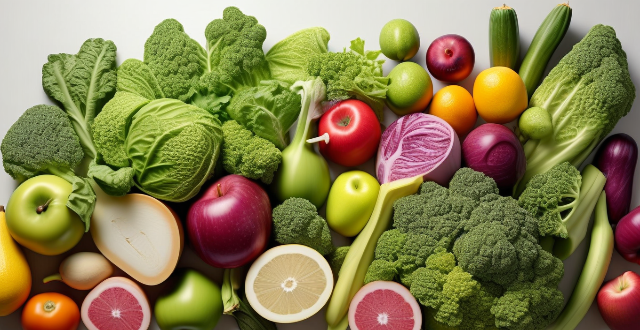
How can I improve my athletic performance through diet
Improving athletic performance through diet involves eating a balanced diet, increasing protein intake, consuming plenty of fruits and vegetables, drinking enough water, avoiding processed foods, eating before training or competition, and considering supplements. A balanced diet includes carbohydrates, proteins, and healthy fats in the right proportions. Protein is essential for building muscle and repairing damaged tissues, while fruits and vegetables are rich in vitamins, minerals, and fiber. Drinking enough water is crucial for staying hydrated during exercise. Avoiding processed foods can prevent harm to your performance and health. Eating before training or competition can provide energy and prevent fatigue. Supplements such as whey protein powder, amino acids, and BCAAs can improve performance but should be taken under the guidance of a nutritionist or doctor.

Can diet and exercise affect memory according to scientific studies ?
Diet and exercise can positively impact memory, asDiet and exercise can positively impact memory, as a healthy lifestyle that promote cognitive while regular physical activity increases blood flow to the brain, reduces inflammation, and promotes the growth of new neurons. Conversely, a poor diet lacking in essential nutrients and lack of exercise can have negative effects on memory over time. Therefore, adopting a healthy lifestyle that includes a balanced diet and regular exercise is essential for maintaining good memory and overall brain health.
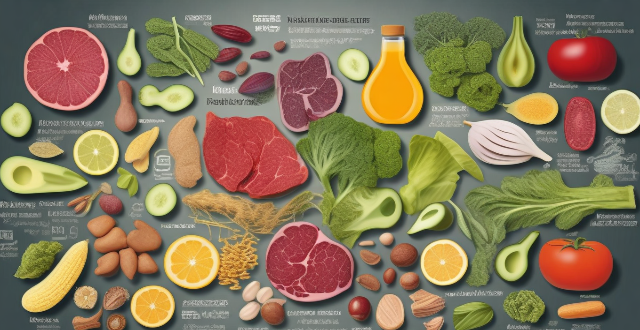
How does diet affect personal health ?
The article discusses the importance of a healthy diet in maintaining good health. It explains what constitutes a healthy diet and its benefits, such as reducing the risk of chronic diseases, improving mental health, managing weight, strengthening the immune system, and improving sleep quality. The article also provides tips for maintaining a healthy diet, including eating a variety of foods, limiting processed foods, watching portion sizes, being mindful of eating habits, getting enough sleep, and staying active.
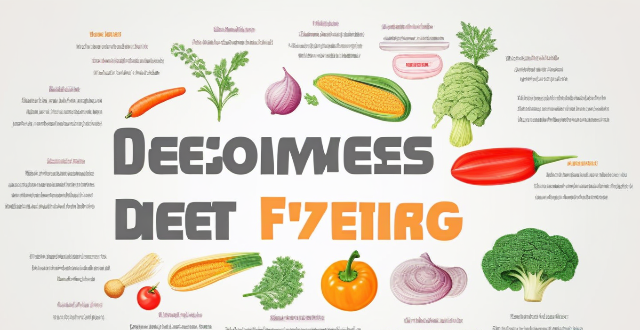
Are there any specific diets recommended for people with diabetes ?
The text discusses recommended diets for people with diabetes, including the Mediterranean diet, DASH diet, vegetarian or vegan diets, low carbohydrate diets and focusing on portion control and mindful eating. It emphasizes the importance of working with a healthcare professional to determine the best dietary approach based on individual needs and preferences.
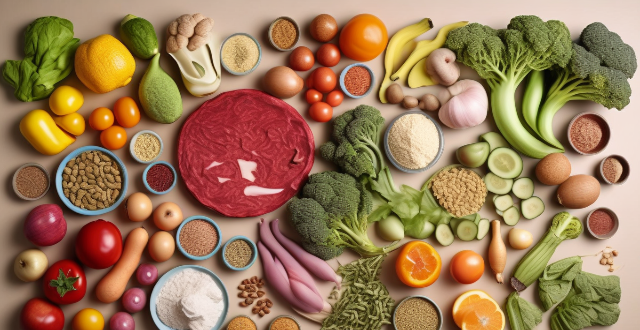
How can a healthy diet improve women's reproductive health ?
A healthy diet is crucial for women's reproductive health, affecting fertility, pregnancy, and menstrual health. Essential nutrients like folic acid and iron support conception and hormone regulation. Calcium, vitamin D, and magnesium can reduce PMS symptoms, while iron-rich and antioxidant-rich foods improve period health. During pregnancy, nutrients like folic acid and iodine are crucial for fetal development, and fiber and hydration maintain maternal health. A balanced diet can also prevent gynecological issues like fibroids and ovarian cysts. Additionally, weight management and mental health through a healthy diet promote overall well-being. Consulting healthcare professionals for personalized dietary advice is recommended.
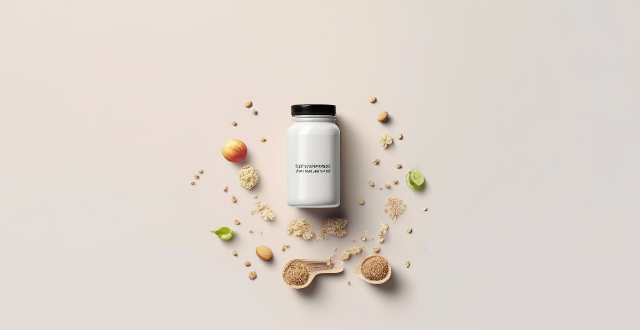
Are there any potential side effects of switching to a gluten-free diet ?
Switching to a gluten-free diet can have several potential side effects, including nutrient deficiencies, digestive issues, weight gain, headaches and fatigue, and higher cost. It is important to be aware of these potential side effects and take steps to ensure adequate nutrition on a gluten-free diet. Consultation with a healthcare professional is recommended before making any significant changes to your diet.
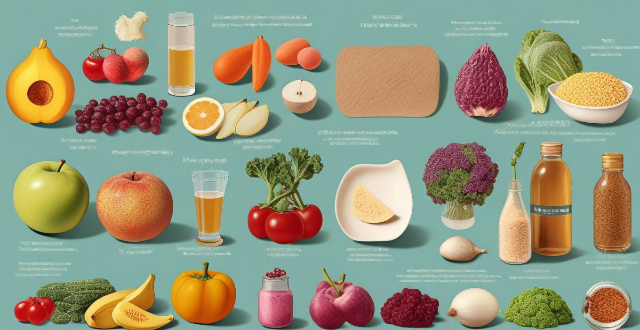
What are the potential risks associated with a high-fat diet ?
A high-fat diet, particularly one rich in saturated and trans fats, can pose several health risks. These include an increased risk of cardiovascular disease, obesity and weight gain, type 2 diabetes, liver disease, cancer, and digestive issues. It is essential to maintain a balanced diet that includes healthy fats while limiting the intake of saturated and trans fats found in processed foods and fried foods.

How can women ensure they are getting enough calcium in their diet ?
Calcium is crucial for women's health, especially for maintaining strong bones and teeth. Women can ensure they are getting enough calcium by knowing their requirements, including calcium-rich foods in their diet, considering supplements if needed, and maintaining a healthy lifestyle with regular exercise and limited alcohol consumption. It's important to consult with a healthcare professional for personalized advice.
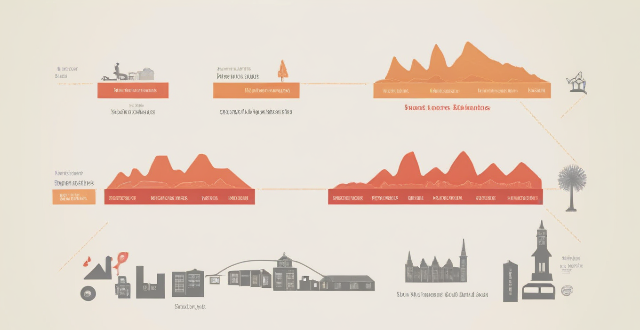
Can you explain Australia's points-based immigration system ?
Australia's points-based immigration system is a method to select skilled immigrants for permanent residency. The system assigns points based on age, education, work experience, and language proficiency. It aims to attract skilled workers who can contribute to the country's economy and fill labor market gaps. Applicants must meet health and character requirements and are placed into a pool of candidates for selection. The system provides transparency and fairness in the immigration process by using objective criteria to evaluate applicants.

What are some easy ways to reduce sugar intake in my diet ?
Reducing sugar intake is crucial for a healthy lifestyle. Here are ways to reduce sugar in your diet: read food labels, avoid sugary drinks, choose whole foods, cook at home, swap sweet treats for healthier options, limit added sugars in beverages, and gradually reduce sugar intake. By following these steps, you can significantly lower your sugar consumption and improve your overall health.

Can taking sports nutrition supplements compensate for a poor diet and lack of exercise ?
Sports nutrition supplements cannot fully compensate for a poor diet and lack of exercise. While these supplements can provide certain nutrients essential for athletic performance, they cannot replace the overall benefits of a healthy lifestyle. A balanced diet and regular exercise are crucial for maintaining good health and supporting athletic performance. Supplements should be used cautiously and with guidance from a healthcare professional to ensure they complement your overall lifestyle rather than replace it.

Are there any health benefits to eating a gluten-free diet even if you don't have an allergy or intolerance ?
Eating a gluten-free diet has become increasingly popular in recent years, with many people choosing to eliminate gluten from their diets for various reasons. However, the question remains: are there any health benefits to eating a gluten-free diet even if you don't have an allergy or intolerance? ### Possible Health Benefits While the scientific evidence is limited and often conflicting, some studies suggest that a gluten-free diet may offer certain health benefits, even for those without celiac disease or gluten sensitivity. Here are a few potential advantages: 1. **Improved Digestive Health** - Some individuals report fewer digestive issues when they avoid gluten, such as bloating, gas, and diarrhea. 2. **Reduced Inflammation** - Gluten can cause inflammation in some people, which may contribute to chronic diseases like heart disease and diabetes. A gluten-free diet might help reduce this inflammation. 3. **Weight Loss** - Since many gluten-free products are lower in calories and fat than their gluten-containing counterparts, switching to a gluten-free diet could potentially lead to weight loss. 4. **Better Nutrient Absorption** - For those with undiagnosed gluten sensitivity, avoiding gluten may improve nutrient absorption and overall gut health. 5. **Increased Energy Levels** - Some people claim they feel more energetic after eliminating gluten from their diets, possibly due to improved digestion and nutrient absorption. ### Potential Downsides It's important to note that a gluten-free diet isn't necessarily healthier for everyone, and it can have its drawbacks: 1. **Nutrient Deficiencies** - Gluten-free foods often lack essential nutrients found in whole grains, such as fiber, B vitamins, iron, magnesium, and selenium. 2. **Higher Cost** - Gluten-free products tend to be more expensive than their gluten-containing counterparts. 3. **Processed Foods** - Many gluten-free alternatives are highly processed and contain added sugars, fats, and sodium to improve taste and texture. 4. **Social Challenges** - Dining out or attending social events can be more difficult on a gluten-free diet due to cross-contamination risks and limited menu options. 5. **Lack of Scientific Evidence** - There isn't enough research to support the idea that a gluten-free diet provides significant health benefits for people without allergies or sensitivities. ### Conclusion While a gluten-free diet may offer some potential health benefits for individuals without celiac disease or gluten sensitivity, these benefits are not guaranteed and should be weighed against the possible downsides. It's always best to consult with a healthcare professional before making significant changes to your diet, especially if you suspect you have an allergy or intolerance.
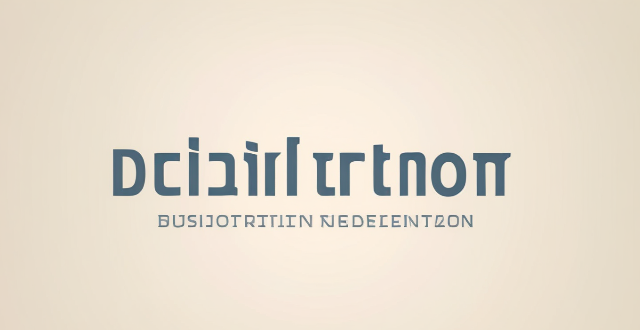
What is the relationship between climate change and gender-based violence ?
The text discusses the correlation between climate change and gender-based violence, emphasizing that they intersect in several ways. It mentions how climate change exacerbates social inequalities, making women more vulnerable to gender-based violence, such as sexual assault and harassment during displacement and overcrowding caused by natural disasters. It also points out the economic impact on women who manage household resources during scarcity, potentially leading to domestic violence due to increased stress and tension. The text further highlights how climate change can reinforce harmful gender norms, affecting men's ability to provide for their families and leading to frustration and aggression towards women. It also notes the impact of climate change on women's access to justice, as legal institutions may be disrupted or overwhelmed by climate-related disasters, making it difficult for women to report incidents of gender-based violence or seek legal recourse. Lastly, it mentions the negative impact of climate change on mental health, which can increase the risk of gender-based violence. The text concludes by emphasizing the need for a comprehensive approach to address both problems, taking into account their intersection and differential impact on various populations, to create a more equitable and just world.

How do technology-based learning tools contribute to innovative teaching practices ?
This article discusses the role of technology-based learning tools in innovative teaching practices. It highlights how these tools can enhance student engagement, facilitate collaboration and communication, provide access to global resources, and enhance assessment and feedback mechanisms. The article also emphasizes the importance of personalized learning experiences and gamification techniques in making education more engaging and enjoyable for students. Overall, the article suggests that technology-based learning tools have the potential to revolutionize education by making it more interactive, accessible, and effective.
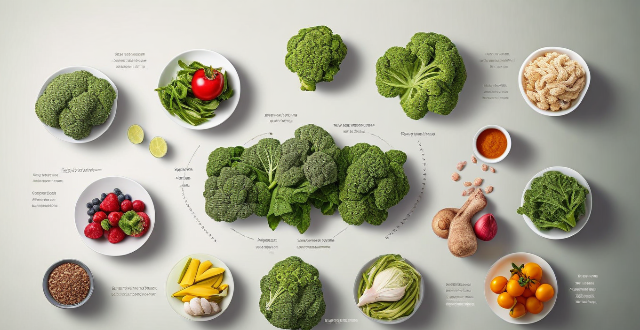
Are there any specific diets that enhance exercise efficiency ?
Yes, there are specific diets that can enhance exercise efficiency. These include a high-carbohydrate diet for energy, a low-fat diet for weight management and cardiovascular health, a high-protein diet for muscle recovery and maintenance, and a plant-based diet for optimal nutrient intake. Examples of foods in each diet category are provided, along with the benefits they offer for exercise efficiency. It is recommended to consult with a healthcare professional before starting any new diet plan.

Can you recommend a classic Italian pasta sauce that's not tomato-based ?
Certainly! If you're looking for a classic Italian pasta sauce that isn't tomato-based, one excellent choice is the Pesto Sauce. Here's a closer look at this delicious sauce: ### Ingredients: - Fresh basil leaves - Garlic - Pine nuts - Parmesan or Pecorino cheese - Extra virgin olive oil - Salt ### Preparation: 1. Gather all the ingredients to make a perfect batch of pesto. 2. Toast the pine nuts in a dry pan to enhance their flavor. 3. Blend the basil, garlic, toasted pine nuts, grated cheese, and extra virgin olive oil in a food processor until well blended but still slightly chunky. 4. Season with salt and possibly some pepper. 5. Mix the pesto with cooked pasta, adding some reserved cooking water if needed. ### Tips: - Use fresh basil for the best flavor. - Choose a good-quality extra virgin olive oil. - Adjust the cheese and garlic quantity based on personal preference. ### Variations: - For a Pesto alla Trapanese variation, use almonds instead of pine nuts, add tomatoes, and sometimes mint along with the basil. - Try different types of nuts such as walnuts for a Walnut Pesto. Pesto is not only versatile but also easy to prepare. It's a vibrant green sauce that's full of flavor, making it a perfect alternative to tomato-based sauces. Enjoy your pesto with pasta or use it in other dishes like sandwiches or as a dip.
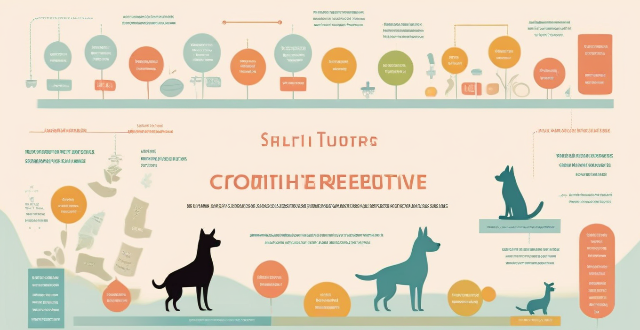
How do I recognize if my pet is overweight and what can I do about it ?
This article provides a comprehensive guide on recognizing if your pet is overweight and outlines steps to manage and potentially reverse the issue. It includes visual checks like Body Condition Score (BCS) and waist and rib checks, as well as behavioral cues such as decreased activity level and difficulty in movement. The solutions involve diet management, including consulting a veterinarian, providing a balanced diet with portion control, regular exercise, health monitoring, mental stimulation through puzzle toys and training, and maintaining consistency in care. The text emphasizes the importance of patience, consistency, and adaptability in managing pet weight issues.